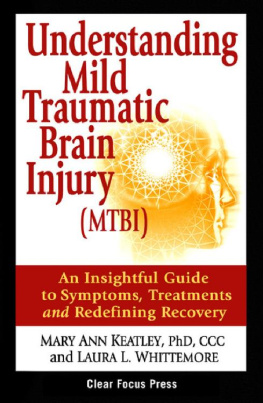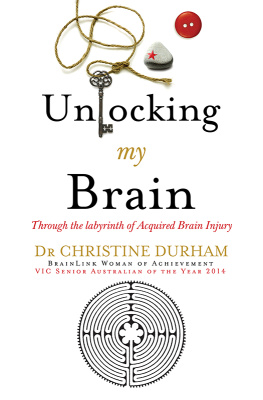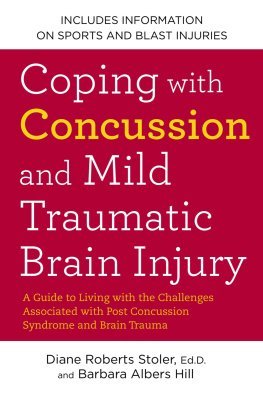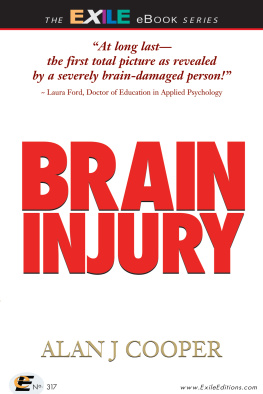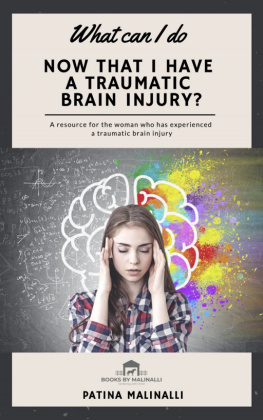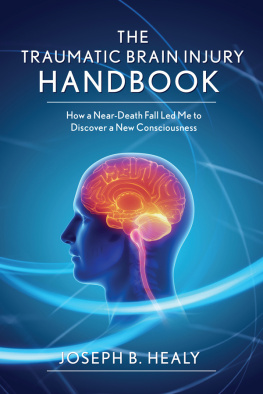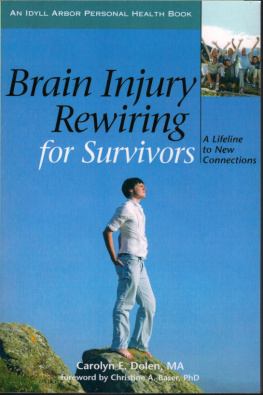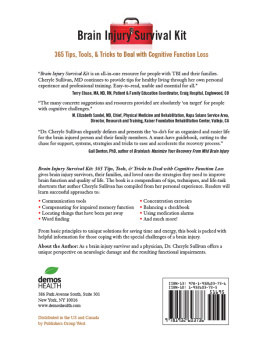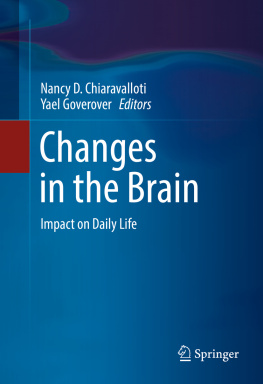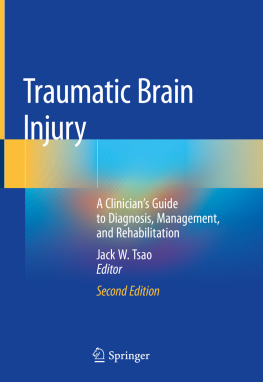Understanding Mild Traumatic Brain Injury (MTBI)
An Insightful Guide To Symptoms, Treatments and Redefining Recovery
Mary Ann Keatley, PhD, CCC and Laura L Whittemore
Copyright 2018 Mary Ann Keatley, PhD, CCC.
All rights reserved, including the right of reproduction in whole or in part in any form, or otherwise without the prior written permission of the publisher, Clear Focus Press.
Clear Focus Press
PO Box 10578
Kalispell, MT 59904
Disclaimer: This book is not designed to replace a physicians independent judgment about the appropriateness or risks of a procedure or therapy for a given patient. Our purpose is to provide you with information and understanding that will help you make confident health care decisions.
Cover design by Tony Greco www.tonygrecodesign.com
Interior illustrations by Kersti Frigell kfrigell@comcast.net
Photos by Barbara Colombo www.11-11productions.com
Interior design by Ronnie Moore westype@comcast.net
This book is dedicated to the strength and courage of the survivors of brain injury who are the unrecognized heroes who persevere to recover and thrive.
Table of Contents
Acknowledgments
CHAPTER 1
Understanding Mild Traumatic Brain Injury (MTBI)
Traumatic Brain Injury has been labeled the Silent Epidemic.
It happens in the blink of an eye. In that instant your life is changed. It may have been caused by a fall, automobile or sports related accident or a blast injury from an explosion. Recovering from mild traumatic brain injury (MTBI) is a new experience not only for those who are injured but also for those caring people who want to help. The first step is to learn all you can about MTBI and to accept it as a starting pointa new beginning.
This book was created for you, your family, and your support system to increase awareness about brain injuries. It is our intention to empower you with the inside knowledge and wisdom gained from those who experienced MTBI and moved through the healing process, in order to survive, thrive and ultimately prevail in their lives.
Although mild traumatic brain injury affects millions of people and was recognized well over a hundred years ago, it is currently taking a position in the limelight. Numerous articles and TV specials are covering the effects of TBI on our Wounded Warriors returning from Iraq and Afghanistan. Many professional athletes are stepping forward to report the possible long-term affects from multiple concussions.
Use this book as a guide to navigate through the unknown territory of brain injury. What you are experiencing may be unknown to you and your loved ones, and it is also a new frontier in science and research. The innovations in science, computers and imaging are moving at lightening speed at the same time that there appears to be an acknowledgement and acceptance of this type of injury. Basically, we have a perfect cataclysm of science and humanity coming together to advance research and help solve the mysteries of brain injury and open new doors for recovery.
The ideas presented in this book are recommendations. It is essential that you consult a professional to develop a treatment program that is individually designed for your needs. Your brain is one of your most important assets and it is worth rehabilitating to improve the quality of your life.
Definition of MTBI
A mild traumatic brain injury (MTBI) is defined as a blow or jarring of the head that results in a disruption of brain functioning. MTBI has been labeled the Silent Epidemic Brain injuries can range from mild to severe. All brain injuries should be considered serious, and you should alert your physician about the symptoms you are having.
Mild traumatic brain injuries are usually called closed head injuries because there is a non-penetrating injury to the brain. This type of injury can be caused by whiplash, a blast injury, or hitting the head, resulting in bruising, stretching, and shearing of the axons and/or tearing of the tissues. For the complete medical definition of MTBI, refer to Appendix A.
Contrary to popular belief, you DO NOT need to hit your head to sustain a mild traumatic brain injury. A whiplash injury, where the head accelerates and decelerates without making contact, can cause a brain injury. There is also new research that indicates that concussions may be caused by blast waves from explosions. Studies being done at Johns Hopkins reveal that even if you were not hit in the head or knocked out, the indirect, powerful pressure waves caused by a bomb may affect the brain.
MTBI Often Goes Unidentified or Misdiagnosed
Many times the brain injury is not documented during the acute stage, because physical pain overrides the awareness of MTBI. Following a concussion or MTBI, awareness levels may be reduced and you may not realize that you have suffered a brain injury. As the body begins to heal and you become more active, the head injury becomes more apparent.
The history of mild traumatic brain injury has been documented for more than a century. During the 1860s, it was discovered that individuals who were injured in railway collisions suffered from brain injuries. It was believed that their symptoms were caused by nervous shock to the spinal cord and the brain.
The latest report from the Center for Disease Control (CDC) states that approximately 1.7 million people sustain a brain injury in the United States each year, and 800,000 of those are believed to be mild traumatic brain injuries. TBIs are increasing among children because of their involvement in sports.
The CDC also reports that 1.1 million are treated and released from emergency departments, but the actual number of people with TBI, who are not seen in emergency rooms or do not receive care, is unknown. An estimated 5.3 million Americans are living with TBI related disabilities. The greatest number of traumatic brain injuries are caused by falls followed by motor vehicles accidents.
Brain injuries are cumulative in nature. In other words, if you suffer more than one concussive injury over time, the effects may accumulate and even a small impact to the head, may manifest as a more serious injury.
Neurological examinations and brain imaging studies, such as MRI and CT Scans, may be normal even if you have sustained a brain injury. However, your doctor may have ordered these tests in the beginning to rule out other medical conditions. Newer imaging tests, such as PET Scans or SPECT Scans, have proven to be more informative for this type of injury. The field of neuroimaging is changing rapidly so be sure to consult your doctor to determine which tests would be most beneficial.
Although the injury may be invisible to the outside observer, MTBI usually has a number of symptoms, such as nausea, dizziness, vomiting, sleep disturbance, blurred vision, sensitivity to light and sound, fatigue, etc. Emotionally you may feel a shaken sense of self and out of control. Very often there is an overlap of symptoms of Traumatic Brain Injury (TBI) and Post Traumatic Stress Disorder (PTSD).
CHAPTER 2
Post Traumatic Stress Disorder (PTSD)
A neuropsychological evaluation from a neuropsychologist helps to delineate symptoms of depression, PTSD and MTBI.
Survivors of TBI are particularly susceptible to major depression, generalized anxiety disorder, and posttraumatic stress disorder. PTSD frequently co-exists with mild traumatic brain injury and has many of the same symptoms. PTSD is defined as a disorder that develops after a distressing psychological event that is outside typical human experience. It is characterized by re-experiencing or reliving, over and over again, painful or stressful situations. Examples of traumatic emotional events that can cause PTSD include wars, accidents, physical and mental abuse and natural disasters (hurricanes, earthquakes). Even rescue workers and first responders, such as firefighters, EMTs and police may experience secondary traumatic stress disorder. Medical workers, such as ER doctors, nurses, psychologists, therapists and caregivers have been known to experience compassion fatigue.
Next page
